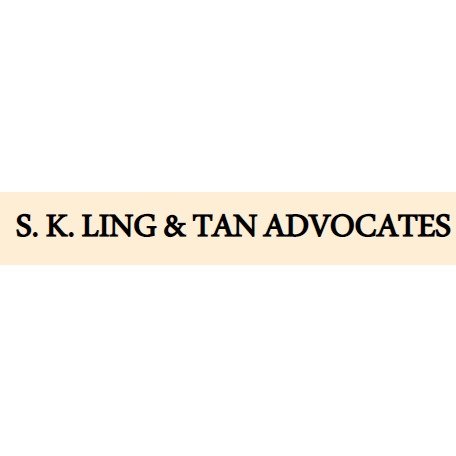Best Tax Increment Financing Lawyers in Kuching
Share your needs with us, get contacted by law firms.
Free. Takes 2 min.
List of the best lawyers in Kuching, Malaysia
About Tax Increment Financing Law in Kuching, Malaysia
Tax Increment Financing (TIF) is a public financing method used as a subsidy for redevelopment, infrastructure, and other community-improvement projects. While TIF is widely used in many parts of the world, its applications in Kuching, Malaysia, have specific local nuances due to regional legislation and economic conditions. In Kuching, TIF may be utilized to foster development in underdeveloped districts, aiming to boost economic activity and improve public infrastructure through strategic financial incentives. Understanding how TIF is implemented and regulated locally is essential for stakeholders considering investment or development projects in the area.
Why You May Need a Lawyer
There are several scenarios where legal advice might be beneficial for individuals or organizations involved in or considering Tax Increment Financing in Kuchin:
- Navigating the complexities of regional legislation and regulations related to TIF.
- Ensuring compliance with local government requirements and processes.
- Assessing risks and benefits associated with proposed TIF projects.
- Disputes over TIF boundary allocations, project scope, or tax increments.
- Negotiating contracts or agreements related to TIF projects.
A lawyer specialized in TIF can provide crucial guidance, ensuring projects align with legal frameworks and mitigating potential legal issues.
Local Laws Overview
The legal landscape for TIF in Kuching is shaped by national legislation, state law, and local ordinances. Key legal aspects include:
- The establishment of TIF districts or zones, based on specific criteria set by local authorities.
- Regulations on how incremental tax revenues generated by TIF zones are calculated and allocated.
- Guidelines for the type of projects eligible for TIF funding, often focusing on enhancing public infrastructure or promoting economic development in targeted areas.
- Transparency and reporting requirements for projects funded by TIF to ensure accountability in the use of public funds.
Frequently Asked Questions
What is Tax Increment Financing?
Tax Increment Financing is a tool that allows municipalities to promote development in certain areas by using future tax revenues generated by the increased property values to fund current improvements.
How is a TIF district established in Kuching?
A TIF district in Kuching is established through a proposal and approval process involving local government bodies, which assess the necessity and potential impact of the proposed district.
What types of projects can be financed through TIF?
Projects typically financed through TIF in Kuching include infrastructure improvements, roadworks, public transportation enhancements, and community development projects that stimulate economic growth.
Who can apply for TIF funds?
Typically, local government bodies request TIF funding, but private developers may also apply if they demonstrate alignment with public development goals and requirements.
What legal issues can arise with TIF projects?
Common legal issues include disputes over fund allocation, project compliance with legislative requirements, and disagreements over contract terms.
How are tax increments calculated?
Tax increments are calculated based on the increase in property tax revenues attributed to the rise in property values within the TIF district after improvements are made.
Is public input required for TIF projects?
Yes, public input and transparency are often required during the proposal and execution phases of TIF projects to ensure community needs and concerns are addressed.
Can TIF districts be modified or terminated?
Yes, TIF districts can be modified or terminated, typically through local government review processes that assess ongoing project relevance and success.
What are the risks associated with TIF?
Risks include potential project failure, increased public investment without anticipated returns, and possible disputes over land use and community impact.
How long does a typical TIF district last?
The duration of a TIF district varies, typically ranging from 15 to 30 years, allowing sufficient time to achieve redevelopment goals and recoup investments through tax increments.
Additional Resources
For further information and guidance on Tax Increment Financing in Kuching, you may contact:
- Local municipal offices for specific queries regarding TIF districts and project submissions.
- The Department of Urban and Regional Planning for regulatory frameworks and compliance advice.
- Kuching Chamber of Commerce and Industry for networking and project collaboration opportunities.
- Legal professionals specializing in Malaysian public finance law for personalized legal advice.
Next Steps
If you require legal assistance with Tax Increment Financing in Kuching, consider the following steps:
- Research, and identify legal professionals or firms specializing in TIF and public finance law in Kuching.
- Prepare a detailed description of your project or legal concern for the initial consultation.
- Schedule consultations with multiple lawyers to assess their expertise, approach, and potential costs.
- Select a lawyer who aligns with your needs and collaborates to develop a strategic plan for your TIF-related project or issue.
Professionally navigating TIF laws ensures projects remain compliant, minimizes risks, and maximizes the potential benefits of leveraging Tax Increment Financing in Kuching.
Lawzana helps you find the best lawyers and law firms in Kuching through a curated and pre-screened list of qualified legal professionals. Our platform offers rankings and detailed profiles of attorneys and law firms, allowing you to compare based on practice areas, including Tax Increment Financing, experience, and client feedback.
Each profile includes a description of the firm's areas of practice, client reviews, team members and partners, year of establishment, spoken languages, office locations, contact information, social media presence, and any published articles or resources. Most firms on our platform speak English and are experienced in both local and international legal matters.
Get a quote from top-rated law firms in Kuching, Malaysia — quickly, securely, and without unnecessary hassle.
Disclaimer:
The information provided on this page is for general informational purposes only and does not constitute legal advice. While we strive to ensure the accuracy and relevance of the content, legal information may change over time, and interpretations of the law can vary. You should always consult with a qualified legal professional for advice specific to your situation.
We disclaim all liability for actions taken or not taken based on the content of this page. If you believe any information is incorrect or outdated, please contact us, and we will review and update it where appropriate.












